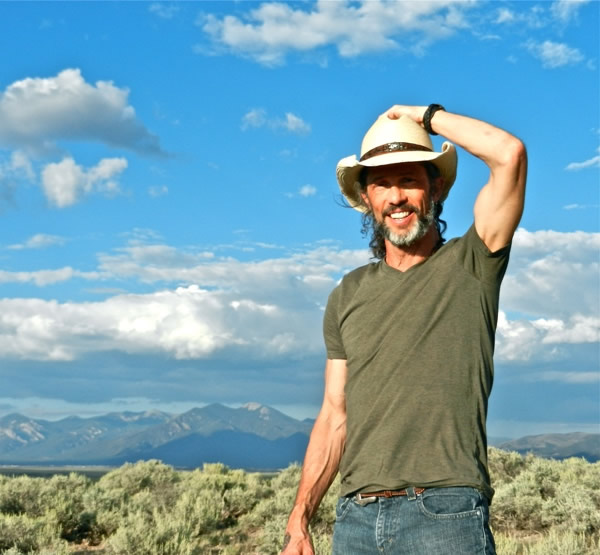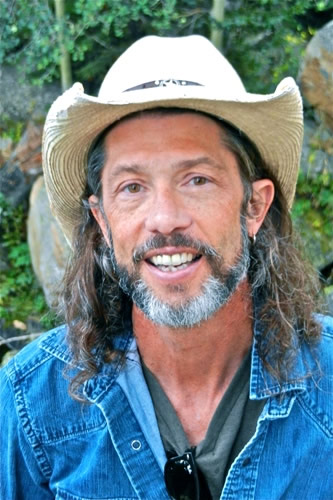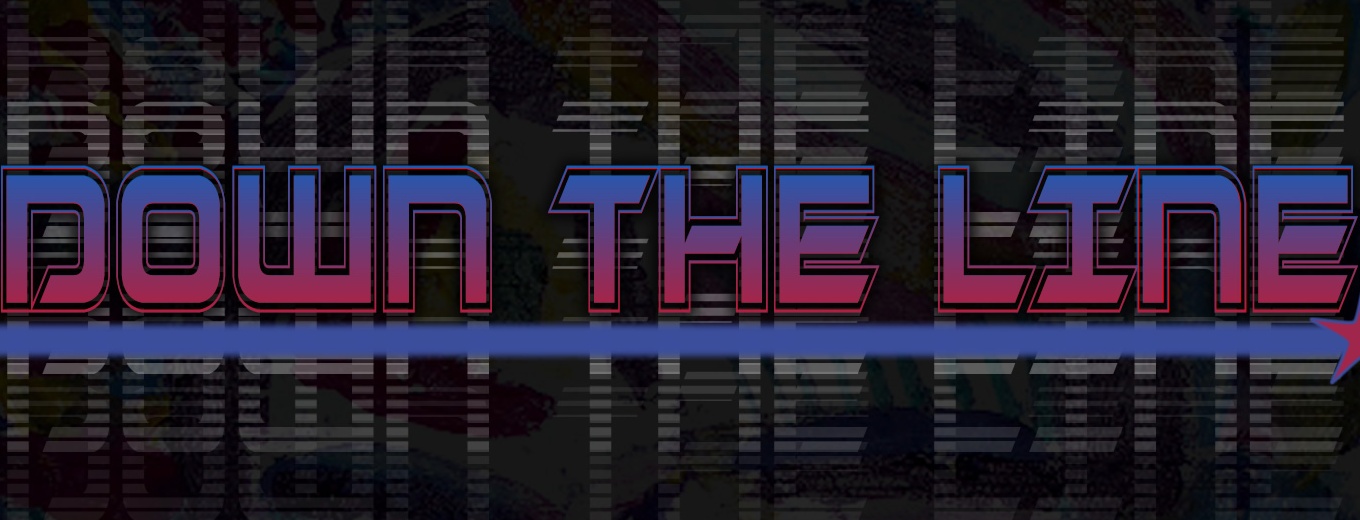
You have put out a huge number of albums, some via label and some self-released, can you give us somewhat of a background on the records that you have done before we talk about the new release Amber Waves?
Sure, first the bit of background. No album is made in a vacuum, you know. In places one finds oneself dictates however subtly what shows up in the writing process. For me, chasing that elusive thing called HOPE has been a driving search. Of course, the early songs were written to be delivered in a small, crowded Athens, GA club scene. There was a certain slash & burn swagger mixed with more introspective songs.
The early records and the ways they were rendered “live” made for a lot of post-punk ethos. All in all, I’d have to say early R.E.M. was undoubtedly the beacon. Their sense of energy in the midst of a happening scene was just very heady to watch and be a part of. Vigilantes of Love incubated in that same scene, and while we were signed in 1991, I did feel a sense of being part of something very original, very passionate and very cool.
So, in summation: Those first three records (JUGULAR, DRIVING THE NAILS & KILLING FLOOR) were me as a songwriter maturing, and in many ways I was intensifying as a “live” performer. That ritual of constant writing, recording and touring relentlessly set the stage for the bigger budget mid-90’S records (STRUGGLEVILLE, BLISTER SOUL, SLOW DARK RAIN & VOL). We signed to Capricorn in 1992. Having a label to “answer to” simply meant I’d think about making sure an album had a few singles on it, radio-friendly stuff. That was no issue since I’ve always been a huge fan of the 3 and 1/2 minute hooks laden indie pop-song. I never thought we compromised our integrity ever. In fact, if anything, we asked to get the hell out of Dodge when we felt the label ceased to “get us.”
When we went back to indie status in 1997 we had made so many new fans that we could still make records easily on smaller budgets and get the fans to be the distributors. When the whole industry crashed in 2000-2001 there was just no way to find the resources to maintain a full-time band on the road. It was definitely a “grieving process,” Steve. I loved the fact that VoL could be a band that played the extremes. Big noisy, rock and roll all the way down to smaller-voiced, more vulnerable material. It was an honor that our last band record, “Summershine,” got fantastic reviews before the label pulled the plug on it. We were stupid to ever think the blue-grassy label we were signed to would ever “get” an American neo-psychedelic album.
50 albums in, it’s a staggering number Bill! At this point how have you refined the process for yourself? Walk us through a song from conception to completion:
Well, you start to write a different kind of song, really. You trust your gut more. You learn to explore and expose differently your heart experiences and how they hit you. You develop a different nomenclature to describe things, and you learn to examine the territory of your own spirit and write about it as you age and mature a bit. You ask yourself if the old truths and templates you bet on still hold true. And if not, well which ones do you discard? It can be a very existential and destabilizing process. ALL of that is what has gone into the solo albums, some 30 of them now, if you count the EP’s.
These days, as an Americana writer, I think my writing has become even more private and vulnerable these last 10 years. Like I said, you absolutely learn to trust your gut about “how” you write. There is a lessening of artifice…there’s no one to please and no one to make happy. It’s just me, the guitar, and a story to tell, even if it’s “my own,” you know. There is something very, very “freeing” about that. I have become more and more enamored of what is called “the American experience.” I want the essences of that in my work. Questions like: What does it mean to suffer, to struggle, to be heroic? What does it mean to love, to have faith, to believe? Just the basic preliminary questions are where I start; I never write with a sense of where the song is going or “suppose” to go. You should never, never, never “over-think” a song or a lyric. That’s why I think the WPA EP’s are a wonderful thing. They are very limited in the sense that I’m working with 4 tracks, but they definitely have pushed me to see how much can be “said” with less. I really love the challenge.
Talk to the reader directly about the importance of house shows and what the “fan driven” promotion means to you as an artist
Well, for me the house show thing is truly where all the magic happens. They tend to be nurturing for both listener and performer. You’ve got just this massive intimacy factor. I walk in with a guitar and a bunch of songs to a room full of folks. The songs have to be strong, the dialogue engaging and most importantly: YOU HAVE TO CONNECT WITH FOLKS. Doing house gigs under all sorts of conditions has made me a better performer and made me write a different sort of song.
My contention is that underneath; we’re all living in the same skin. Whether it is our joys & sadness or our fears and hopes, I think we’re all pretty much cut from the same cloth. THAT’S the space I try to get into in these shows. I still love the big noisy rock club scene, and most of the last two records roll that way, but even so, when I’m playing solo or with Muriah, it’s a different thing that’s being brought to the moment, you know? It’s those minimum of variables that make them all different and wonderful.
In the liner notes to Amber Waves you mention the “failed experiment” of democracy. I was just talking about that very thing with a friend recently, can you elaborate on that and where the music fits in to that pattern of thinking?
I think it has failed, but NOT because there’s something wrong with democracy. It has failed in America because we have this idea that raw, un-tethered capitalism is somehow synchronous with democracy. They are two very different things, in my opinion. We have allowed our political processes to be engorged with money and as Bob Dylan so aptly said, “money doesn’t talk…it swears.” Jeremiah said, “The human heart is desperately wicked. Who can understand it?” If that is so, then when you introduce that heart to the dynamics of unchecked capitalism, then greed is bound to be the result, and that is exactly what you have in this country today.
We live in a country where there is an ever-widening gap between the rich and poor. The rich with their wealth tend to insulate themselves from not only from economic disaster, but from the cries of those who are marginalized and disenfranchised. American history is riddled with the sad story of this dynamic. I’m not advocating a massive socialism or a welfare society. I AM all for justice to show her face in the forms of opportunities like jobs brought home to our shores, like education and health care being pretty close to free.
We’ve conducted a foreign policy based on “PAX AMERICANA.” It’s some stupid throw-back notion that came out of and older doctrine called “manifest destiny.” It’s simply another form of colonialism and corporations have run with it for years now, and the result is that there are fewer jobs here. We have no energy policy and we’re as dependent on foreign oil as ever. We should not be in the dark. Jimmy Carter, and more recently Al Gore, have eloquently described what the end of the matter is for our planet. When big oil, or the agribusiness field and/or pharmaceutical field start dictating the vertical and horizontal of Government policy, then we’re catering to the rich, the powerful, and I would say, the greedy. THAT’s where democracy has failed. It has simply become an unexamined by-word for capitalism. For some strange reason a large cross-section of the evangelical church here seems to think democracy and capitalism are the same thing.
Americana/folk music has always had the underpinning of social/political commentary as well as references to spirituality from a personal and collective perspective… how do you find in this day and age, and at this time in history, social/political commentary and spirituality intersect, and can they be blended without controversy?
Very much “yes,” to the first part of your question: Of course there are the beautiful themes of love & loss & death, grieving and hope. But also, into Americana music is woven a distinctive socio-political spirit. From the songs of Christian believers seeking religious freedom, to the songs of the slaves, to the songs wrought in the mountains of Appalachia, to the miners songs, farmer songs, to the songs of those victims of the Great Depression; songs of the rail-riders, the dust bowl/migrant worker songs, and all the way down to the songs of African-Americans seeking equal rights. Americana music is a great vehicle for those stories of struggle. Johnny Cash could bring it. I love Woody Guthrie’s sticker on his guitar “This Machine Kills Fascists.” It’s a testimony to how a small relatively cheap instrument can be powerful. It can tell a story. It can report the news. It can change people’s hearts.
 Musically, what are some of your favorite tracks on Amber Waves?
Musically, what are some of your favorite tracks on Amber Waves?
Oh, I dunno if I could answer that one, Steve. They’re all your babies and at different times they all take 1st place. This record definitely is “conceptual” in the senses that certain themes are connected via the sequencing, so it’s hard to break it up. That’s the way I’ve always listened to music. It’s the WHOLE album, not just the “single.” Off the bat, I’d say, the title track, “Amber Waves (golden)”, “To The Nines”, “One Kiss At A Time”, “Faith Comes Soaked in Gasoline”, “Yeah, Yeah, Yeah”, “Break In The Clouds”, “What You Take & What You Leave Behind”, “Walking Disaster”, & the closer “Into God Knows What.” But, see we’re up to 9 songs already! I can’t answer it! We’ve been playing many of those ‘live’ and getting good responses.
What songs have become some of your favorites to play live in the last few months?
We (Muriah & I) really have enjoyed playing a new one called “Fight Song.” And another called “Steering Wheel.” They’ll both be on a new EP called Fight Songs/WPA 15…which will surface early next year. Currently, “Faith Comes Soaked in Gasoline” has been a “show-stopper.” And “Into God Knows What” has been a wonderful, if melancholy closer.
Of course the stories that accompany these songs in the “live” setting are part of the ticket. Obviously I don’t put spoken word stories on an album, but a lot of folks after the shows have said they love the delivery of such stories preceding the song. It’s pretty cool when you get the occasional comparison to John Prime or Townes Van Sant or Kris Kristofferson. Good company!
What plans are you making for the Holidays and coming back east?
Oh, Muriah and I hardly ever go into hibernation for long. I’ve written a new Christmas song called “Heart Like A Train” which I’ll record and post before Christmas. I hope she’ll record a solo EP next year. She is just an amazing voice and songstress. And since this lil’ operation is so word-o-mouth (THANK YOU DOWN THE LINE ZINE FOR THE INK!) and under-the-radar, we try to keep up on booking and writing and planning the next album…never-ending, you know?
It’s almost non-stop…but we really do make for some down-time around December. A winter in Northern New Mexico is a thing of beauty.
Lots to reflect on and lots to be thankful for.
Blessings to you, Steve, to Down the Line Zine and your readership!


Leave a Reply